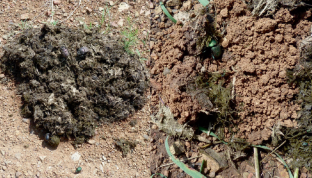Environmental health is an under-studied aspect of the One Health approach, despite being equally important to human, animal and plant health. Now, a study, aiming to redress this imbalance, shows the potential ecotoxicological effects of treating cattle with insecticide to control mosquitoes that spread malaria.

References
Heinrich, A. P. et al. Nat. Sustain. https://doi.org/10.1038/s41893-024-01332-8 (2024).
Carpenter, S. R. Ecology 77, 677–680 (1996).
Krüger, K. & Scholtz, C. H. Acta Oecol. 19, 425–438 (1998).
Kryger, U., Deschodt, C. & Scholtz, C. H. Agric. Ecosyst. Environ. 105, 649–656 (2005).
Hanski, I. & Cambefort, Y. (eds) Dung Beetle Ecology (Princeton Univ. Press, 1991).
Campbell, W. C. (ed.) Ivermectin and Abamectin (Springer, 1989).
Author information
Authors and Affiliations
Corresponding author
Ethics declarations
Competing interests
The author declares no competing interests.
Rights and permissions
About this article
Cite this article
Forbes, A. Ecotoxicology in malaria vector control. Nat Sustain (2024). https://doi.org/10.1038/s41893-024-01342-6
Published:
DOI: https://doi.org/10.1038/s41893-024-01342-6
- Springer Nature Limited


